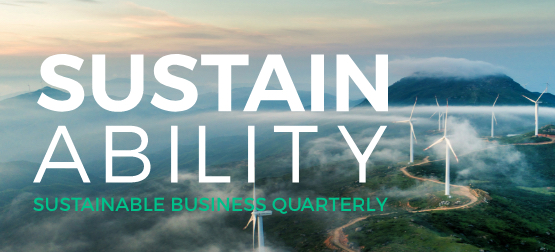
Sign-up for our Sustainable business quarterly newsletter
Sustainability
Following the onset of the pandemic, unprecedented measures were implemented at a speed that would have previously been thought impossible.
As a result, broader transformational change now seems feasible, potentially putting new momentum behind calls to move away from high-carbon assets, and unethical and unsustainable practices.
So what will be COVID-19’s long-term impact on the sustainability agenda? And how will COVID-19 change business, our economies and wider society?
Amid the human tragedy of coronavirus, the environment has benefited from the reduction of economic activity. Until very recently, climate change was seen as the single greatest threat we faced. Now, as the world considers how to reboot economies stalled by COVID-19, an opportunity exists to accelerate the transition to a more sustainable future.
Coronavirus could eventually change how we generate energy, produce goods, source raw materials and manage supply chains. On a social level, the pandemic has strengthened communities, while the critical roles played by relatively underpaid workers (including care workers and teachers) in responding to COVID-19 – and the vulnerability of gig-economy workers – raises questions over how we define value.
The sharing economy has taken on a whole new meaning as companies offer products and services for free, and people donate time instead of money. Could this mindset be harnessed to influence economic activity and change business models?
Widespread homeworking could fundamentally change how – and where – we recruit, work and interact with each other.
Over the longer term, the coronavirus could reshape the nature of capitalism. The crisis has highlighted how all economies need core services to function properly. A world that values profit over purpose risks undermining both those services and the people that deliver them.
More people now see the need for an economy that provides meaningful work, high levels of wellbeing and equality of opportunity, while delivering low-carbon, zero waste and environmental restoration. Coronavirus may be the threshold of a fundamental, systemic change to our economic paradigm. Adaptability and resilience will become primary competitive advantages.
Here we explore the impact of coronavirus on sustainability from four different perspectives: the environment, society, the way we work and our economy.
Our work on sustainability helps us understand how businesses should now be preparing for a post-coronavirus world.
If you would like to discuss these issues in more detail, please speak to your usual Freshfields contact or one of the lawyers listed below who can direct your query.

London

Hong Kong

London, Dublin

New York

Düsseldorf

Paris

Manchester

London, Dublin

London

New York